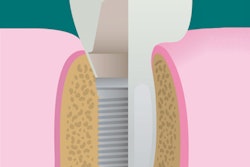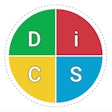
I've always said, the person with the most intention in the room wins. When it comes to case presentation, there's no exception. Since most of you entered dentistry with a passion to help people, not a passion for selling, presenting a treatment plan to a resistant patient can be daunting. And without the intention of getting them to accept the plan, they will usually end up rejecting it.
 Jay Geier is the president and founder of the Scheduling Institute.
Jay Geier is the president and founder of the Scheduling Institute.The good news is you don't have to be a great salesperson to be able to sell treatment plans to patients. You can utilize some universal principles of psychology to help you dramatically increase your case acceptance.
In last week's column, I introduced you to Robert Cialdini's six principles of influence and covered the first three: authority, reciprocity, and scarcity. This column will cover the remaining principles of consensus, consistency, and liking.
It's important to remember that by implementing these principles in an ethical way, you will achieve a win-win for the practice and your patients. The goal is to persuade your patients to accept the treatment they genuinely need -- saving them a lot of time, money, and future problems while increasing your production and collections.
1. Consensus
This principle states that people will look to the actions and behaviors of others to determine their own. Consensus is especially effective if you use examples of other people who are similar to the person you're trying to persuade -- in age, gender, and income range, for example.
So, how can you implement social proof in your treatment presentation to increase your case acceptance? It could be as simple as ending your discussion with a comment: "About 80% of the patients I work with choose to have this procedure done." Of course, you'll want to replace that statistic with real data.
Another great way to use this shortcut is by leveraging written testimonials from satisfied patients -- your "super fans." Make sure to share these rave reviews on your practice's website, Facebook page, brochures, postcards, and other marketing materials. While you're at it, you can post some of these testimonials -- say, on the office bulletin board -- where they're visible to everyone. Some of my clients have even made a book out of their patients' testimonials and put it out as reading material in the reception area!
2. Consistency
Consistency is all about asking people to make small, initial commitments to increase the chances that they're persuaded by your request. It's important that these commitments are voluntary and public (or shared with at least one other person).
How can you implement this principle in your practice? Well, for example, you could ask patients to write down their appointment details on the appointment card instead of having your team do it. It might seem like a simple change, but according to 60 years of research by Cialdini, this small, written commitment can actually make a significant difference. Simply by asking patients to write down their own appointment information, health centers were able to reduce their number of missed appointments by 18%. The best part is that this principle is 100% free to implement and requires very little time or effort on your part.
3. Liking
The final principle states that people prefer to say yes to people they like. So, how do you influence whether your patients like you? Keep three factors in mind. We tend to like the following people:
- Those who are similar to us
- People who pay us compliments
- People who cooperate with us toward mutual goals
Obviously, you can't change your personality or demographic to become more similar to a patient -- but you can highlight the things you both have in common. In fact, Cialdini's studies showed that briefly discussing common interests before delving into business related topics (in your case, the treatment presentation) significantly increased the two parties' ability to reach a compromise.
So, you happen to notice that your patient is wearing a Panama City Beach T-shirt? Why not make a few remarks about the beach. And as simple as it sounds, don't forget to smile, speak kindly, and make eye contact. Trust me -- it isn't a waste of time. It's actually a valuable tool that will allow you to increase your case acceptance, practice growth, and profit.
Jay Geier is the president and founder of the Scheduling Institute.
The comments and observations expressed herein do not necessarily reflect the opinions of DrBicuspid.com, nor should they be construed as an endorsement or admonishment of any particular idea, vendor, or organization.


















